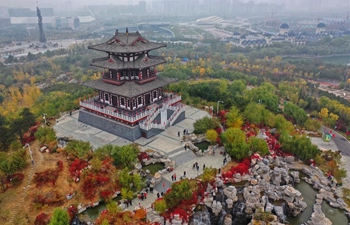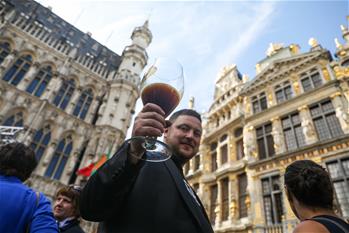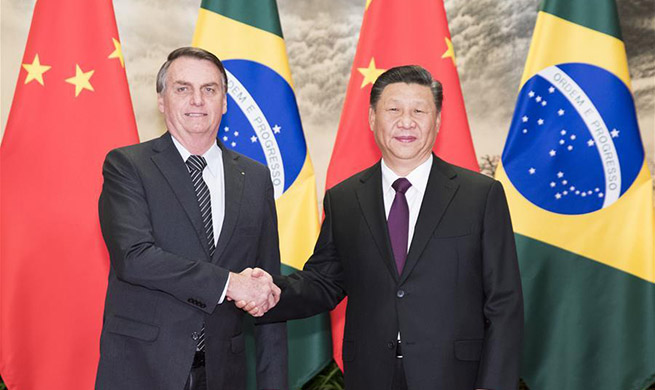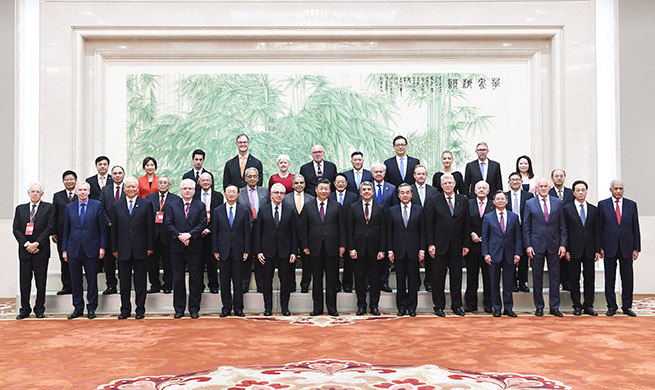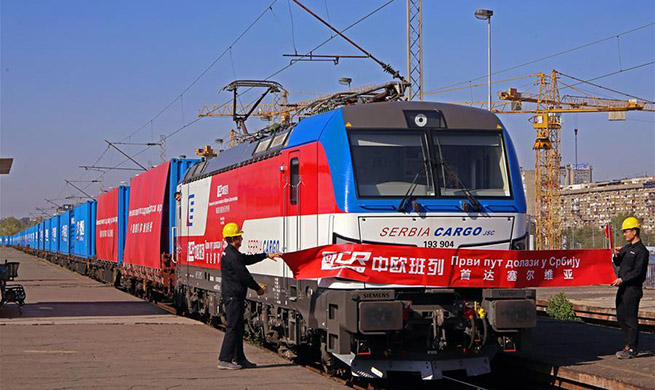BAGHDAD, Oct. 25 (Xinhua) -- Iraqi Prime Minister Adel Abdul Mahdi on Friday warned of chaos if the government resigns, and promised a cabinet reshuffle, more job opportunities and the establishment of a court to prosecute corrupt officials should he remain in power.
"The resignation of the government today without providing a constitutional alternative means leading the country into chaos," Abdul Mahdi said in his televised speech earlier Friday.
Abdul Mahdi said that he will carry out a cabinet reshuffle next week away from the quota system followed in Iraq after 2003, focusing on competence and independence of ministers.
He said that he would seek constitutional amendments to overcome "mistakes" in the political process.
Abdul Mahdi reiterated his planned reforms announced in the aftermath of protests earlier in the month, including reducing the salaries of high-ranking officials to half, job opportunities for youth and the establishment of a new court to try corrupt officials.
He also said that he had issued strict instructions to release all detained protesters and not to silence the media.
Dozens of protesters had begun to gather in Tahrir Square in downtown Baghdad as Abdul Mahdi made his televised speech, hours ahead of already planned protests on Friday in Baghdad and other Iraqi provinces.
Earlier this month, massive protests erupted in the Iraqi capital Baghdad and other central and southern provinces over chronic unemployment, corruption and lack of public services.
The Iraqi government responded with presenting packages of reforms aimed to provide job opportunities, build housing complexes and pay stipends to the poor, as well as scaling up the fight against corruption.
On October 22, a high-level panel tasked with a probe into the killing of some 150 protesters during the wave of anti-government protests, announced its final report, and recommended sacking and prosecuting a number of security officers in Baghdad and other Iraqi provinces.
The panel confirmed that there were no direct orders from the high-level security authority to open fire at protesters. The security officers used excessive force with live ammunition due to their "weak command and control during the protests" that led to high casualties.







